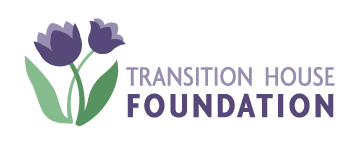Transition House Domestic Violence Program Hotline, Safehouse and Advocate Services: 1-800-563-2945
Free and confidential crisis support, information and referrals are available 24 hours a day, seven days a week.
Whether you need emergency shelter, court advocacy or a listening ear and helping hand, give us a call to discuss your situation or that of a loved one.
Our Services:
- Two crisis lines 24-hours-a-day.
- Our services are strictly confidential.
- Support and shelter to women and children who are emotionally, physically, or sexually abused.
- Information on the cycle of violence, a protection plan, the stages a woman faces in a battering relationship, etc.
- Counselling to develop a renewed sense of self-worth and understanding that no one deserves to be battered.
- Therapeutic Childcare Program for children who accompany their mothers to Transition House.
- Adolescent program for teenagers who accompany their mothers to Transition House.
- Outreach program for women in the community who need assistance, and offer support groups for women in the Industrial Area, who live in or have left abusive relationships.
- Public education program for schools, service agencies, and the community at large.
- We provide support to women in court.
- We offer two second stage housing units (safe affordable housing). MacAdam House is located in Glace Bay and Callwood House is in Sydney.
- Referrals to doctors, lawyers, community services, employment opportunity programs, affordable housing and more.
FAQs
Below is some basic information if you are seeking shelter at Transition House. If you have additional questions, please do not hesitate to contact one of our programs:
The Cape Breton Transition House serves CBRM and Victoria County.
24 Hour Help Line: 539-2945 Toll-Free 1-800-563-2945
Email: cbtranshouse@ns.aliantzinc.ca
Mailing address: P.O. Box 487, Sydney, NS B1P 6H4
Outreach phone: 902-562-3045
Childcare Counsellor: 902-562-1336
Education/Fundraising: 902-562-4190
Where can I put my belongings when I leave?
There is limited storage space onsite for families entering Transition House. Our staff will assess the families’ storage needs with them to determine what can enter the home and what might need to be stored offsite based on our capacity and policies.
Where can my pets go?
Currently, the Transition House is not able to provide shelter for animals. The SPCA of Cape Breton is a good resource for people needing shelter for their pets. They are able to shelter cats, dogs and other small companion pets.
SPCA of Cape Breton: Address: 401 E Broadway, Sydney, NS B1N 3K1, Phone number: (902)539-7722
I have more questions. Whom do I call?
If you have additional questions, please contact us at (902) 562-3045 or email us at: thfoundation@ns.aliantzinc.ca
How Can You Help Someone Who Is Being Abused?
If you know someone who is being abused, the most important thing to do is listen and let them know you are concerned for their safety. Be supportive and acknowledge that the situation is very difficult and scary. Help them recognize that the abuse is not their fault, reassure them that they are not alone, and let them know that there is help and support available. What they need most is someone who will believe and listen to them. They may leave and return to the relationship many times. Be non-judgmental — they will need your support even more during those times.
One of the most critical services that Transition House provides at our Safehouse, on our 24-hour Domestic & Sexual Violence Hotline, and through our counselling services is safety planning. Here are some of the important topics we discuss with those experiencing abuse:
Phone Safety
Every cell phone can be tracked through GPS or tracking devices. Smartphones can even have apps installed that run constantly without the user’s knowledge. If the survivor needs to call a hotline or another number that would raise suspicion from their abuser, they should use a public phone or borrow a phone from someone else. When they leave the relationship, it is best to remove the battery from their phone and dispose of it.
Danger Zones
Survivors of abuse can usually tell when their abuser is escalating the violence. At these times, it is important to stay out of the two most dangerous rooms in the house: the kitchen and the bathroom. These rooms have hard surfaces and weapons that can cause serious injury.
An Escape Plan
Leaving is the most dangerous time in an abusive relationship. Survivors should try to pack a bag that has copies or originals of important documents for themselves and their children and changes of clothes or personal items that they would not want to leave behind. If possible, they can keep this in a place that is easily accessible if they need to leave hurriedly but will also not draw the attention of their abuser.
Code Words and Signals
If a survivor reaches the point where they are in severe danger but are not able to call 911 or escape, it is good to also have another way of reaching out. For example, someone who needs to immediately escape their home could call a supportive friend and give a code word that would signal the friend to call the police. A dish towel hung outside the window could signal to someone that the family is in distress.
Through education and awareness we can work together to stop future violence.
Financial contributions will help to make Cape Breton Transition House a more comfortable, safe, and healing place, and will help support educational programs.
If you would like to support the shelter through volunteer work or a donation, please contact us at:
TRANSITION HOUSE FOUNDATION
PO Box 487
Sydney, Nova Scotia
B1P 6H4
